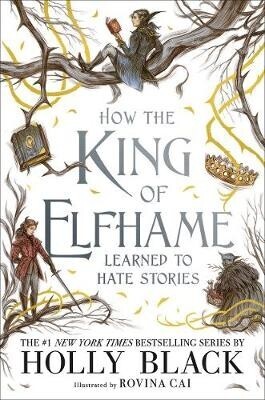Λίστα αντικειμένων
An irresistible return to the captivating world of Elfhame from bestselling Folk of the Air author Holly Black, with stunning full-colour illustrations by Rovina Cai. Once upon a time, there was a boy with a wicked tongue ... Before Cardan was a cruel prince or a wicked king, he was a faerie child with a heart of stone. In this sumptuously illustrated tale, Holly Black reveals a deeper look into the dramatic life of Elfhame's enigmatic high king. This tale includes delicious details of life before The Cruel Prince, an adventure beyond The Queen of Nothing, and familiar but pivotal moments from The Folk of the Air trilogy, told wholly from Cardan's perspective. This new instalment in the Folk of the Air series is a return to the heart-racing romance, danger, humour and drama that enchanted readers everyw here. Each chapter is paired w ith lavish and luminous full-colour art, making this the perfect collector's item to be enjoyed by audiences both new and old.

